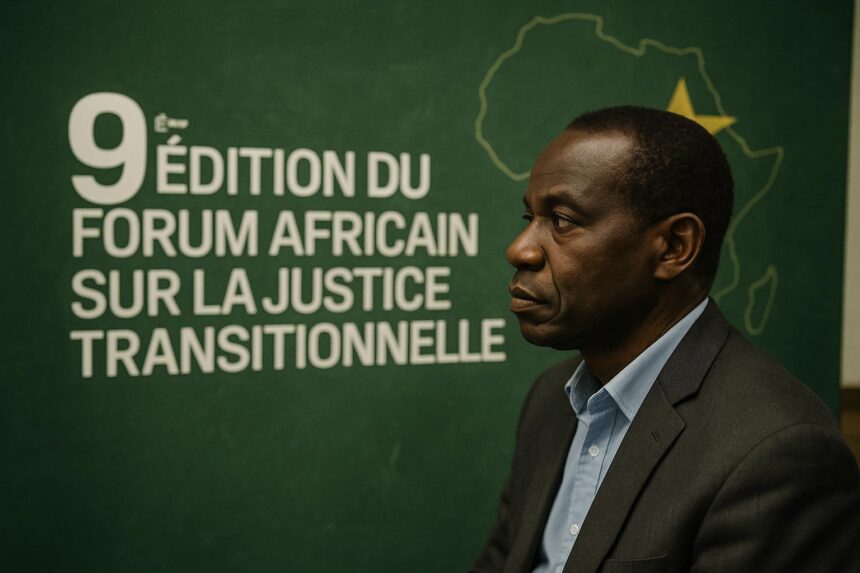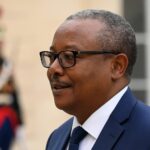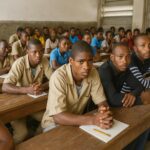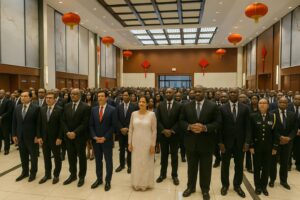Kinshasa Forum Draws Africa’s Justice Leaders
Kinshasa is hosting Africa’s most influential conversation on transitional justice. From 30 September to 2 October, public officials, diplomats, experts and civil-society leaders gather for the ninth African Forum on Transitional Justice, seeking new tools to anchor peace and stability across the continent.
The opening ceremony, held under the high patronage of Democratic Republic of Congo President Félix Antoine Tshisekedi Tshilombo, signalled Kinshasa’s ambition to showcase its experience in peace-building and human-rights promotion while strengthening its voice within the African Union architecture.
Three Days to Shape a Continental Blueprint
Over three intensive days, participants are dissecting one central question: how to guarantee truth, foster reconciliation, deliver effective reparations and reform public institutions so that transitional justice becomes a lived reality rather than an academic slogan for millions of Africans.
Launched in 2017, the forum travels annually. After an eighth edition in Mauritius, it now settles on the Congo River, making Kinshasa a laboratory for ideas that could guide post-conflict societies from Tripoli to Maputo.
Four Pillars, One Goal
Panels are organised around four pillars widely accepted as the backbone of transitional justice: truth-seeking, reparations, institutional reform and guarantees of non-recurrence. Each working group is tasked with drafting practical recommendations that the African Union can relay to member states.
Delegates stress that such guidelines must speak to people’s daily challenges, from land restitution in rural zones to reintegration opportunities for ex-combatants in crowded urban centres. The emphasis, say organisers, is on solutions that are affordable, inclusive and respectful of diverse African legal traditions.
Partnerships and Diplomacy in Action
Support from the European Union, the National Fund for Reparations of Victims (Fonarev) and other partners underlines how external financing can accelerate local initiatives without dictating them. Brussels officials attending the forum describe their role as that of ‘facilitator’, not ‘lecturer’.
For Kinshasa, the event doubles as soft diplomacy. More than 300 delegates fill hotels, boost taxis and project an image of order at a time when Great Lakes headlines often focus on security concerns.
Observers say the programme aligns with Agenda 2063, the African Union’s plan for inclusive growth and lasting peace. By spotlighting reparations for Africans and their diaspora, organisers link continental priorities to wider global justice movements.
Keeping Promises Beyond the Podium
Civil-society representatives argue that past forums have sometimes produced lofty communiqués that gather dust. This year, they push for measurable benchmarks such as national truth-commission deadlines or budget lines dedicated to victim support. Organisers promise an online tracker to follow up on pledges.
Inside the packed conference hall, survivors from conflict-affected provinces share sober testimonies. Their presence reminds policymakers that numbers on a chart translate into lives interrupted, families dispersed and futures postponed. Many delegates pause interviews to listen, a gesture that underlines the forum’s human focus.
Union Africaine Commissioner for Political Affairs, Peace and Security Bankole Adeoye highlights that transitional justice is not a luxury but ‘a foundation for economic recovery’. Without trustworthy courts and reformed police, he argues, investors hesitate and youth lose faith in public authority.
Central African delegations listen closely, eager to transpose best practices to their national contexts. Though not all voices reach the main stage, informal coffee-break exchanges allow officials to compare notes on land-law updates, victim registries and cross-border cooperation against armed groups.
Economists at the forum link reparations to macro stability. Studies suggest every dollar for victims multiplies in productivity because healed communities re-enter the workforce sooner. Such arguments resonate with finance ministries facing tight post-pandemic budgets.
Eyes on the Future
Youth networks, active on social media, broadcast live snippets, turning complex legal jargon into memes and short videos. Their aim is to make transitional justice ‘trend’ so that political attention survives long after the conference lights dim. Organisers welcome the digital energy.
As the final day approaches, drafting committees race to synthesise dozens of proposals into an outcome document. The text is expected to call for stronger national reparations funds, continent-wide data sharing on missing persons and greater protection for witnesses in transitional-justice proceedings.
Kinshasa’s forum will close on 2 October, yet participants insist the conversation must continue in capitals, courts and classrooms. Only continuous follow-up, they argue, can turn signatures into safe streets and restored livelihoods, allowing post-conflict societies to look ahead with confidence.
Next year’s tenth edition is already slated for North Africa, though the precise host city remains under discussion. Organisers aim to broaden participation by involving more grassroots women’s groups and digital innovators who can localise reparations data for remote communities.
For ordinary citizens following the debate online, the measure of success will be simple: does the process heal wounds and open economic doors? Delegates leave Kinshasa aware that expectations are high, and that credibility rests on translating declarations into tangible change at village level.






















